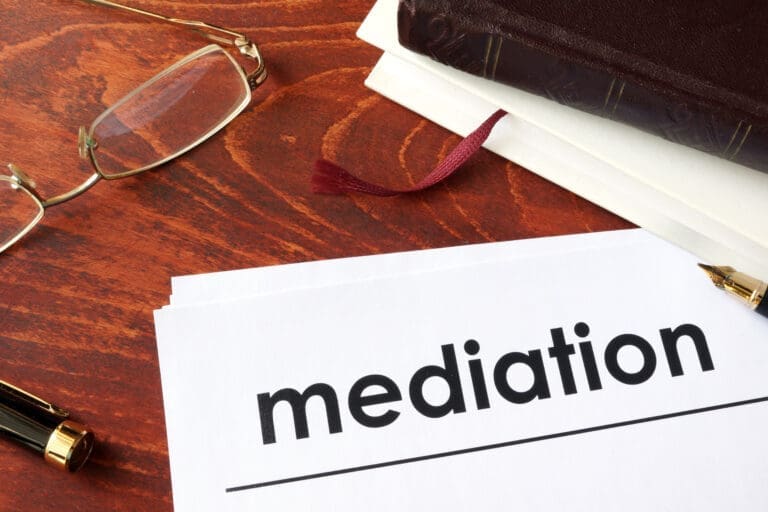
When facing the prospect of filing for bankruptcy, it’s crucial to approach the situation with clarity and the right questions in mind. A bankruptcy lawyer consultation is a critical opportunity to understand your options, the legal processes involved, and what financial decisions you need to make for your future. Knowing what questions to ask during this consultation can significantly impact your case’s outcome. This article will explore essential questions to ask during a bankruptcy consultation, address key aspects of bankruptcy law, and delve into other legal considerations you need to be aware of during the proceso concursal.
Why Is a Bankruptcy Lawyer Consultation Important?
Before diving into the questions, it’s essential to understand why a consultation with a bankruptcy lawyer is so critical. The bankruptcy process is complex, and having a knowledgeable abogado de quiebras by your side ensures that you are well-informed and fully aware of your rights and obligations. Filing for bankruptcy requires navigating various laws and regulations, and without proper guidance, you risk making errors that could delay your case or result in unfavorable outcomes.
During the consultation, a lawyer will assess your financial situation and provide guidance on whether filing for Quiebra del capítulo 7 o Quiebra del capítulo 13 is the best option for you. This discussion will help you weigh the pros and cons of each type of bankruptcy, understand how your assets will be affected, and what the potential long-term consequences could be.
What Are My Bankruptcy Options?
One of the first and most critical questions to ask during your consultation is what type of bankruptcy you are eligible for and which option makes the most sense given your financial situation.
Chapter 7 vs. Chapter 13 Bankruptcy
The two main types of bankruptcy that individuals commonly file are Capítulo 7 y Capítulo 13. Each has distinct eligibility criteria and implications for your financial future.
- Quiebra del Capítulo 7: Also known as liquidación quiebra, Chapter 7 involves the sale of non-exempt assets to pay off creditors. In most cases, individuals who qualify for Chapter 7 have little to no disposable income, and their debt is primarily discharged after the liquidation process. Chapter 7 is often a quicker process, but it comes with the risk of losing assets that are not protected under bankruptcy exemptions.
- Quiebra del Capítulo 13: This option is commonly referred to as a wage earner’s plan. Under Chapter 13, you will create a repayment plan to pay off a portion or all of your debts over three to five years. This type of bankruptcy is more suitable for individuals who have a steady income and want to retain their assets, such as a home or car, while working towards debt relief.
During your consultation, your abogado de quiebras will review your income, assets, and debts to determine which bankruptcy option is appropriate. Be sure to ask specific questions about how each bankruptcy type will affect your financial situation and whether you are eligible for both or only one of these options.
What Debts Can Be Discharged?
A common concern for those filing for bankruptcy is which debts will be discharged or forgiven through the process. Understanding this aspect is crucial, as not all debts are treated equally in bankruptcy proceedings.
Types of Dischargeable Debts
In a bankruptcy case, dischargeable debts are those that can be forgiven, meaning you are no longer legally required to pay them. These typically include:
- Credit card debt
- Medical bills
- Personal loans
- Utility bills
- Certain tax debts
These debts are generally eliminated through the bankruptcy process, giving you the opportunity to start over financially without the burden of repayment. However, it’s important to understand that certain debts are not dischargeable, even in a bankruptcy filing.
Non-Dischargeable Debts
Some debts, such as student loans, child supporty alimony, typically cannot be discharged through bankruptcy. Additionally, debts incurred through fraud or other illegal actions may also be exempt from discharge.
During your consultation, ask your lawyer to clarify which of your debts can be discharged and whether any exceptions apply in your case. This information will help you evaluate the true benefits of filing for bankruptcy and whether it is the best course of action for you.
Will I Lose My Home or Car?
For many individuals considering bankruptcy, the most pressing concern is whether they will lose their home, car, or other significant assets. This question is particularly relevant for those filing under Chapter 7, as it involves the liquidation of assets.
Bankruptcy Exemptions
Fortunately, bankruptcy law includes exemptions that allow you to keep certain assets even if you file for bankruptcy. These exemptions vary by state but commonly include:
- Homestead exemption: Protects a certain amount of equity in your primary residence.
- Vehicle exemption: Allows you to retain a car up to a certain value.
- Personal property exemptions: Protects household items, clothing, and other personal belongings.
- Wildcard exemption: In some cases, this can be applied to any asset of your choice.
In a Quiebra del capítulo 7, your lawyer will work to protect as many of your assets as possible under these exemptions. In Quiebra del capítulo 13, you may be able to keep all of your assets, provided you follow the court-approved repayment plan.
Ask your lawyer how bankruptcy exemptions apply in your state and whether your home, car, or other significant assets are at risk of being sold during the process.
How Long Will the Bankruptcy Process Take?
Another essential question to ask is how long the entire bankruptcy process will take from start to finish. The timeline for bankruptcy can vary depending on whether you file for Chapter 7 or Chapter 13.
Timeline for Chapter 7 Bankruptcy
In most cases, a Quiebra del capítulo 7 is resolved relatively quickly. Once your case is filed, you will attend a reunión de acreedores within 30 to 45 days. After this meeting, it typically takes another two to three months for the court to issue a discharge of your debts. On average, the entire process takes around four to six months.
Timeline for Chapter 13 Bankruptcy
The timeline for Quiebra del capítulo 13 is significantly longer, as it involves a repayment plan that lasts three to five years. During this period, you will make monthly payments to a bankruptcy trustee, who will then distribute the funds to your creditors. Once you complete the repayment plan, any remaining eligible debt may be discharged.
Be sure to ask your lawyer for an estimated timeline based on your specific circumstances and the type of bankruptcy you plan to file.
How Will Bankruptcy Affect My Credit?
One of the most common concerns for individuals considering bankruptcy is how it will impact their credit score. Bankruptcy can have a significant effect on your credit, but understanding the long-term implications can help you plan for financial recovery.
Immediate Impact on Credit
When you file for bankruptcy, it will be noted on your credit report, and your credit score will likely drop. A Quiebra del capítulo 7 will remain on your credit report for ten years, while Quiebra del capítulo 13 stays on your report for seven years. The immediate impact on your credit score will depend on your existing credit history, but most individuals experience a noticeable decrease.
Rebuilding Credit After Bankruptcy
While bankruptcy can negatively affect your credit in the short term, it also provides an opportunity for a fresh start. Many individuals find that they can begin rebuilding their credit relatively quickly after filing for bankruptcy by taking proactive steps such as:
- Paying bills on time
- Opening a secured credit card
- Monitoring credit reports for errors
During your consultation, ask your lawyer how bankruptcy will affect your credit score and what steps you can take to rebuild your credit after your debts are discharged.
What Are the Costs Involved in Filing for Bankruptcy?
Filing for bankruptcy involves certain costs, including court fees and attorney fees. It’s important to understand these costs upfront so you can plan accordingly.
Honorarios de abogados
Attorney fees for bankruptcy cases vary depending on the complexity of the case and the type of bankruptcy you are filing. Chapter 7 cases typically involve lower fees than Chapter 13 cases, as the latter requires a longer, more involved process.
During your consultation, ask your lawyer for a detailed breakdown of the attorney fees, including any potential additional costs that may arise during the process. Some lawyers offer payment plans to help make their services more affordable, so be sure to inquire about this option if needed.
Tasas judiciales
In addition to attorney fees, there are court filing fees associated with bankruptcy. As of now, the filing fee for Quiebra del capítulo 7 is around $335, while Quiebra del capítulo 13 costs approximately $310. These fees may be subject to change, so ask your lawyer for the most up-to-date information during your consultation.
What Are My Responsibilities After Filing for Bankruptcy?
While filing for bankruptcy can provide relief from overwhelming debt, it also comes with certain responsibilities. During your consultation, it’s important to ask about your obligations after filing.
Attending Credit Counseling
Before filing for bankruptcy, you are required to complete a credit counseling course from an approved provider. This course must be completed within 180 days before filing and is designed to help you understand your financial situation and explore alternatives to bankruptcy.
Financial Management Course
After filing, you will also need to complete a debtor education course, sometimes referred to as a financial management course. This course must be completed before your debts can be discharged and is intended to help you develop better financial habits moving forward.
How Will Bankruptcy Affect My Future Financial Decisions?
Filing for bankruptcy is a significant financial decision that will have long-term implications for your financial future. It’s essential to ask your lawyer how bankruptcy will impact your ability to make future financial decisions, such as obtaining a mortgage, securing a car loan, or saving for retirement.
Buying a Home After Bankruptcy
While bankruptcy can make it more challenging to qualify for a mortgage, it’s not impossible. Many individuals are able to purchase a home after bankruptcy, but the timeline will depend on the type of bankruptcy filed and the lender’s requirements. For example, most lenders require a waiting period of at least two years after a Quiebra del capítulo 7 discharge before approving a mortgage. In Quiebra del capítulo 13, you may be eligible to apply for a mortgage while you are still in the repayment period, provided you have made consistent payments.
Retirement and Savings
Another critical question to ask is how bankruptcy will affect your ability to save for retirement. In most cases, retirement accounts such as 401(k)s y IRAs are protected from bankruptcy proceedings, meaning you will not lose your retirement savings. However, it’s important to understand how bankruptcy might impact your ability to contribute to these accounts in the future, as well as any changes to your overall financial planning strategy.
Conclusión
Filing for bankruptcy is a major financial decision that requires careful consideration and thorough preparation. By asking the right questions during your bankruptcy lawyer consultation, you can ensure that you have a clear understanding of your options, responsibilities, and the potential outcomes of your case. Whether you are filing for Quiebra del capítulo 7 o Quiebra del capítulo 13, being informed and working closely with an experienced abogado de quiebras is the best way to navigate the complexities of the bankruptcy process and achieve financial relief.
Remember to use your consultation as an opportunity to gather all the information you need to make informed decisions about your financial future. By doing so, you can move forward with confidence, knowing that you are taking the right steps toward a fresh start.








